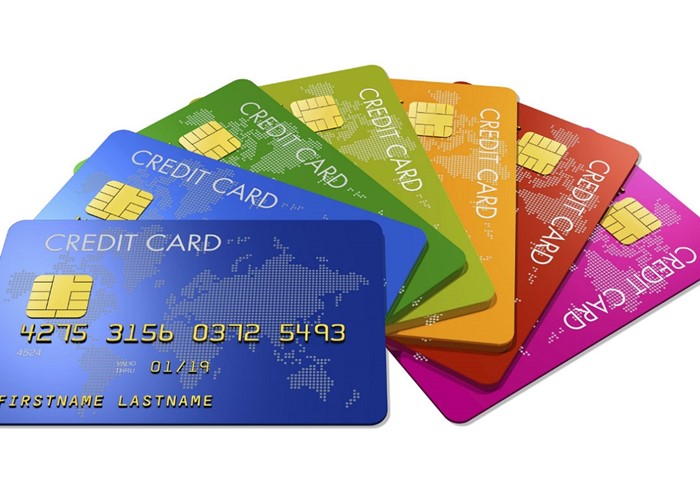Barclaycard launches cheapest balance transfer card

Barclaycard has launched an incredibly cheap 0% credit card, with a balance transfer fee of just 1%!
If you’re carrying a lot of debt on your credit card, take a look at Barclaycard’s new Lowest Balance Transfer Fee card. It really is an excellent card.
Let’s say you have a £5,000 credit card debt. Transfer that debt to the new Barclaycard and you won’t have to pay any interest on the debt for 12 months. And you’ll only be charged a 1% balance transfer fee! That's the lowest transfer fee Barclaycard has ever charged, which will work out at just £50. Way cheaper than any other balance transfer card on the market.
Let’s see how the new Barclaycard compares with rival balance transfer cards:
Top 0% balance transfer cards
|
Credit card |
0% period |
Balance transfer fee |
Fee paid on £2000 transfer |
Fee paid on £5000 transfer |
Normal APR |
Notes |
| Barclaycard Lowest Balance Transfer Fee |
12 months |
1% |
£20 |
£50 |
19.9% |
Initial 1.2% fee is charge, followed by 0.2% refund. |
|
15 months |
1.5% |
£30 |
£75 |
17.9% |
50% refund on balance transfers over £1500 before 16th Nov. |
|
|
15 months |
1.5% |
£30 |
£75 |
15.9% |
|
|
|
22 months |
2.6% |
£52 |
£130 |
17.9% |
|
|
|
23 months |
2.8% |
£56 |
£140 |
17.9% |
|
|
|
MBNA Platinum Credit Card |
20 months |
2.85% |
£57 |
£142.50 |
16.9% |
|
|
22 months |
2.9% |
£58 |
£145 |
16.9% |
One clubcard point for every £4 spent on card |
|
|
20 months |
3% fee |
£60 |
£150 |
16.9% |
|
|
|
22 months |
3.2% fee |
£64 |
£160 |
17.9% |
|
|
|
HSBC Visa |
23 months |
3.3% |
£66 |
£165 |
17.9% |
HSBC current account customers only |
|
22 months |
3.5% |
£70 |
£175 |
17.9% |
|
I’ve ordered the cards so that those with the cheapest fees are at the top of the table.
Although the new Barclaycard has the lowest fee, you’ll see that its interest-free period is relatively short at one year.
However, I don’t think that’s a disaster. Many people will be able to pay off their debt within a year, and if you fall within that camp, why pay a higher fee for a longer 0% period that you don’t need?
Target
I also think that a 12-month period could be a useful target that will encourage some people to pay off their debt at the fastest pace.
That said, if you think there’s no way you’ll be able to pay off your debt within a year, you should probably consider one of the other cards on the table.
Yes, you’ll have to pay a higher fee, but if that means you can pay off all of your debt before the 0% deal expires, that's probably your best bet.
Otherwise, you’ll go for the 12-month card, fail to pay off all your debt, and then have to make another balance transfer, and pay another fee when that 12-month period expires.
Look at this table for how the monthly payments work out for different cards:
Paying off a £5,000 debt using the best card for different time periods
|
Debt pay-off period |
Cheapest credit card for that period |
Balance transfer fee |
Monthly payments |
|
23 months |
£140 |
£224 |
|
|
22 months |
Barclaycard 22 Mth Platinum Visa
|
£130 (2.6%) |
£233 |
|
15 months |
£75 (1.5%) |
£339 |
|
|
12 months |
Barclaycard Lowest Balance Transfer Fee
|
£50 (1%) |
£421 |
Alternatives
It’s also worth noting that not everyone will be able to do a Barclaycard balance transfer. If your existing credit card debt is on a Barclaycard, you’ll have to transfer to another provider – perhaps Fluid or MBNA, depending on how long a 0% period you need.
And sadly, some folk won’t be able to get a 0% card at all. Providers will only give 0% cards to people with good credit ratings. So if your credit rating is poor, you’ll have to take another approach. Check out How to build an excellent credit history.
You might be able to take out a personal loan to pay off your debt or, if things are really bad, it may be worth getting some free advice from one of the debt charities: National Debtline, the Consumer Credit Counselling Service or Citizens Advice.
But if your credit rating is good, and you’re confident you can pay off your debt within a year, then the Barclaycard Lowest Balance Transfer Fee is a great one to go for. A 1% fee just makes it that little bit easier to pay off your debt.
More from lovemoney.com:
New 5% cashback credit card from Sainsbury’s
The best 0% balance transfer credit cards
50% transfer fee refund on Lloyds Platinum balance transfer credit card
Comments
Be the first to comment
Do you want to comment on this article? You need to be signed in for this feature